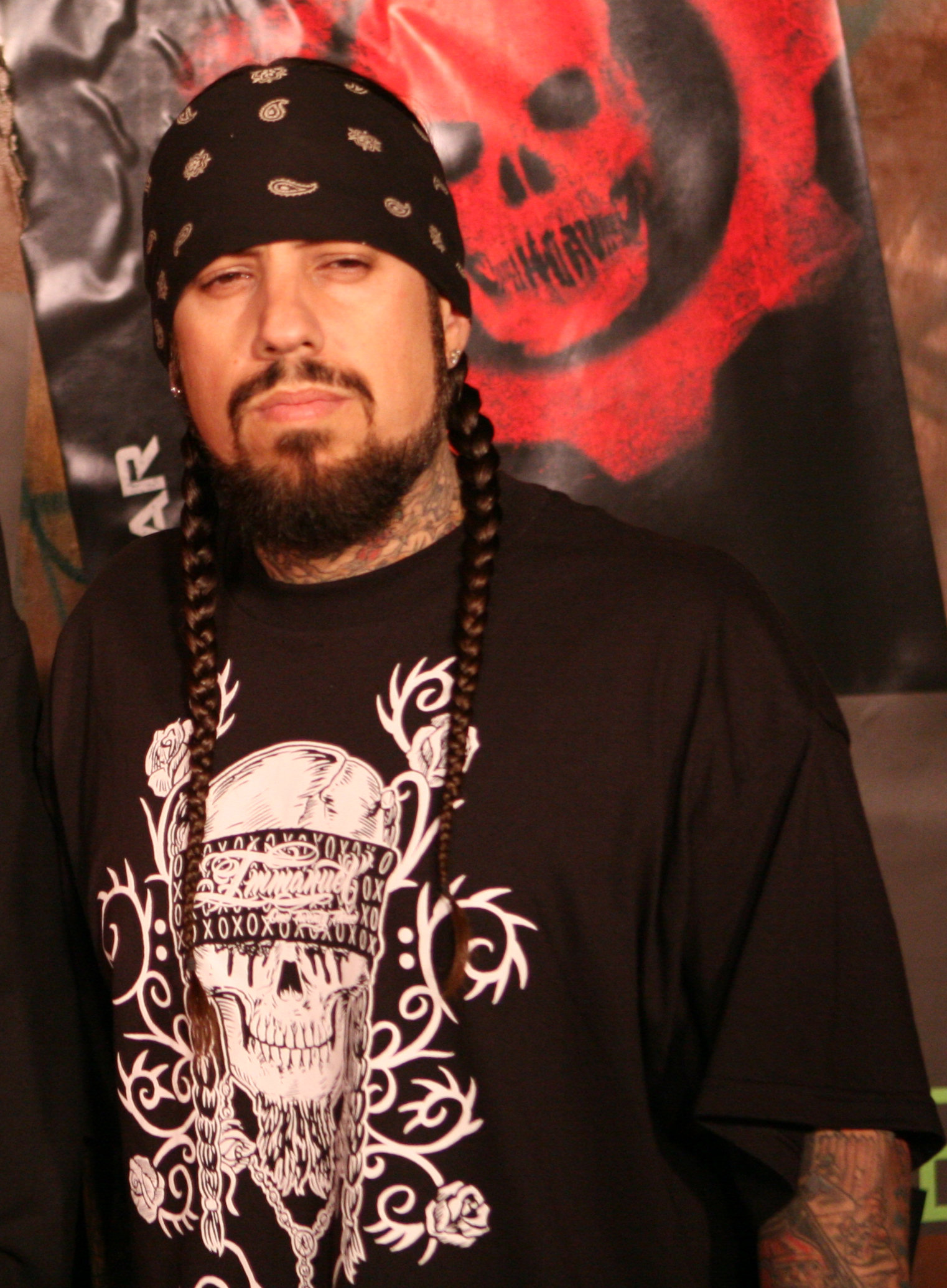
Nu metal
Nu metal (sometimes stylized as nü-metal) is a subgenre of alternative metal that combines elements of heavy metal music with elements of other music genres such as hip hop, alternative rock, funk, industrial, and grunge. Nu metal rarely features guitar solos or other displays of musical technique; the genre is heavily syncopated and based on guitar riffs. Many nu metal guitarists use seven-string guitars that are down-tuned to produce a heavier sound. DJs are occasionally featured in nu metal to provide instrumentation such as sampling, turntable scratching and electronic background music. Vocal styles in nu metal include singing, rapping, screaming and growling. Nu metal is one of the key genres of the new wave of American heavy metal.
For the alloy, see mu-metal. For "new metal" music, see Heavy metal music § Recent styles: mid–late 2000s, 2010s and 2020s.Nu metal
Mid-1990s, California, U.S.
In the late 1980s and early 1990s, bands like Pantera, Helmet, and Faith No More were influential in the development of nu metal with their groove metal and alternative metal styles. Korn is often credited as pioneering the genre in the mid-1990s. Nu metal became popular in the late 1990s, with bands and artists such as Korn, Limp Bizkit, and Slipknot all releasing albums that sold millions of copies. Nu metal's popularity continued through the early 2000s, with bands such as Papa Roach, Staind, and P.O.D. all selling multi-platinum albums. The popularity of nu metal came to a peak with Linkin Park's diamond-selling album Hybrid Theory, which became the best-selling rock album of the 21st century. By the mid-2000s, however, the oversaturation of bands combined with the underperformance of several high-profile releases led to nu metal's decline, leading to the rise of metalcore and many nu metal bands disbanding or abandoning their established sound in favor of other genres.
The 2010s brought a nu metal revival; many bands that combined nu metal with other genres (for example, metalcore and deathcore) emerged, and some nu metal bands from the 1990s and early 2000s returned to the nu metal sound. Bands such as Of Mice & Men, Emmure, Issues, My Ticket Home, and Bring Me the Horizon combined nu metal with metalcore or deathcore. Artists like Grimes, Poppy, and Rina Sawayama integrated nu metal sounds into electronic pop music in the late 2010s and early 2020s, and interest in nu metal rose in the early 2020s.
Characteristics and fashion[edit]
Terminology and origins[edit]
Nu metal is also known as nü-metal[4][5] and aggro-metal.[6][7] It is a subgenre of alternative metal.[6][8] MTV states that the early nu metal group Korn "arrived in 1993 into the burgeoning alternative metal scene, which would morph into nü-metal the way college rock became alternative rock."[8] Stereogum has similarly claimed that nu metal was a "weird outgrowth of the Lollapalooza-era alt-metal scene".[9] Nu metal merges elements of heavy metal music[6][10][11] with elements of other music genres such as hip hop,[6][12] alternative rock,[13] grunge, and funk.[6][10][14][15][16][17] Nu metal bands also use many elements of heavy metal genres such as rap metal, groove metal, and funk metal.[6][14][18] Some nu metal bands, such as Static-X[19] and Dope,[20] made nu metal music with elements of industrial metal. In contrast with other heavy metal subgenres, nu metal tends to use the same structure of verses, choruses, and bridges as those in pop music.[21][22][23]
Legacy[edit]
Reception[edit]
Despite its popularity in the late 1990s and early 2000s, nu metal has often been criticized by many fans of heavy metal music,[52][60] often being labelled with derogatory terms such as "mallcore" and "whinecore".[21] Gregory Heaney of AllMusic called nu metal "one of metal's more unfortunate pushes into the mainstream".[292] Lucy Jones of NME called nu metal "the worst genre of all time".[67] In Metal: The Definitive Guide : Heavy, NWOBH, Progressive, Thrash, Death ... , Garry Sharpe-Young described nu metal as "a dumbed-down and—thankfully short[-]lived exercise".[293] When Machine Head moved to the nu metal genre with their album The Burning Red and their vocalist Robb Flynn spiked his hair in the fashion of many nu metal musicians, the band were accused of "selling out" and many fans criticized their change of appearance and musical style.[138][294] Machine Head's drummer Dave McClain said, "Pissing people off isn't a bad thing, you know? For people to be narrow-minded is bad ... [i]t doesn't bother us at all, we know we're going to piss people off with this record, but some people hopefully will actually sit down and listen to the whole record".[138] Robb Flynn, Machine Head's vocalist, said